Menu
Travel Info:
Faculty

Dr. David Fenstermacher |
Dr. David Fenstermacher is currently the Vice President R&D-Bioinformatics at Medimmune, LLC. With more than 30 years of research experience as a molecular biologist and bioinformaticist, he has held several academic appointments at multiple universities and participated in several national and international informatics projects. During his eighteen years in biomedical informatics, David has designed and directed the implementation of numerous bioinformatics and biomedical informatics distributed computing systems to support basic, translational and clinical research, including multiple institution research projects. He has also designed data warehouses that integrate patient-level clinical data, genomics (genome-wide association studies, massively parallel sequencing, array-based technologies) and other ‘omics data to support studies focused on cancer and other human diseases. Data management systems designed by David have included: collection and integration of subject clinical data; data quality methodologies, development of web-based forms for input, storage and retrieval of clinical and research data, customized data representations using data governance principles and data sharing technologies. Most recent academic research focused on developing informatics resources that span the informatics continuum of Bioinformatics, Biomedical Informatics and Clinical/Medical Informatics specifically for precision medicine including clinical decision support, and health outcomes research. Before joining MedImmune, David served as the Chief Research Information Officer for Virginia Commonwealth University (VCU) and was Founding Chair of the Department of Biomedical Informatics at the H. Lee Moffitt Cancer Center. David received his B.S. in Biology from Bloomsburg University of Pennsylvania and his PhD in Molecular Biology and Genetics from the University of North Carolina at Chapel Hill. |
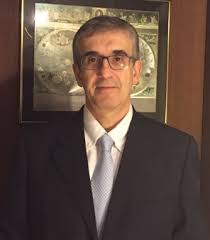
Dr. Dimitris Fotiadis |
Dr. Dimitris Fotiadis received the Diploma degree in chemical engineering from the National Technical University of Athens, Athens, Greece, in 1985, and the Ph.D. degree in chemical engineering and materials science from the University of Minnesota, Minneapolis, in 1990. He is currently a Professor of Biomedical Engineering in the Department of Materials Science and Engineering, University of Ioannina, Ioannina, Greece, where he is also the Director of the Unit of Medical Technology and Intelligent Information Systems, and is also an Affiliated Member of Foundation for Research and Technology Hellas, Institute of Molecular Biology and Biotechnology, Dept. of Biomedical Research. He was a Visiting Researcher at the RWTH, Aachen, Germany, and the Massachusetts Institute of Technology, Boston. He has coordinated and participated in more than 200 R&D funded projects. He is the author or coauthor of more than 220 papers in scientific journals, 400 papers in peer-reviewed conference proceedings, and more than 45 chapters in books. He is also the editor or coeditor of 25 books. His work has received more than 8500 citations (h-index = 46). He is a senior member of IEEE, member of IEEE Technical Committee of information Technology in Healthcare and the Editor in Chief of IEEE Journal of Biomedical and Health Informatics and Associate Editor for Computers in Biology and Medicine. His research interests include multiscale modeling of human tissues and organs, intelligent wearable/implantable devices for automated diagnosis, processing of big medical data, sensor informatics, image informatics, and bioinformatics. |

Dr. Colin Brenan |
Dr. Colin J.H. Brenan is a serial life sciences entrepreneur and senior executive with 30 years experience in scientific research, project management, product development, strategic marketing and financing of early-stage life science companies. Dr. Brenan is currently a Founder and Chief Commercial Officer for HiFiBiO BV (www.hifibio.com). Formerly he was Managing Director of the Monsanto-Atlas Seed Fund Alliance at Atlas Venture (Cambridge, USA) where he identified and invested in seed and early-stage life science companies. Prior to Atlas, Dr. Brenan was Director of Strategic Relationships for the Center for Integration of Medicine and Innovative Technology (Boston, MA) where he implemented CIMIT's innovation strategy with external partners, raised $6M in funding and launched a start-up (Organ Solutions) from the CIMIT Accelerator. Previous to joining CIMIT, Dr. Brenan was the Founder, Chief Technology Officer and Senior Vice President, Business Development for BioTrove Inc. (Woburn, USA), a life science tools and consumables company spun-out from the Massachusetts Institute of Technology (MIT) and acquired by Life Technologies Inc. (LIFE:NASDAQ); and a Founder of Biocius Inc., a drug development instrument and service provider spun-out from BioTrove and acquired by Agilent Inc. (A:NYSE). At Biotrove, he was responsible for development of the OpenArrayTM and RapidFireTM products, expansion of the intellectual property portfolio from one patent application to 76 issued and pending patents, $8M in strategic sales and was the lead or co-lead in raising $30M of investment capital from corporate and venture capital partners. BioTrove is a MIT TLO Success Story, winner of the 2009 North American Frost & Sullivan Award for Growth Strategy Leadership of the Year and the acquisition of BioTrove by Life Technologies was voted one of the top ten M&A transactions of 2009 by PriceWaterhouseCooper. Dr. Brenan is the inventor on 17 US and 18 foreign patents, and published +50 peer-reviewed journal articles, book chapters and reports in the fields of bio-microsystems, confocal microscopy, spectroscopic imaging and microsurgical robotics. He has over a decade of experience in consulting for the US National Institutes of Health and is a reviewer for IEEE, IEE, and AIP journals. Dr. Brenan is a Senior Member of the IEEE-EMBS, the Founder and former Chair of the EMBS Boston Chapter (2002-2007), the EMBS Region 1 Representative (2002-2005), the EMBC 2011 co-Chair and is Editor-in-Chief of IEEE PULSE Magazine (2013-present). He received his B.Sc. (Honors Physics), M. Eng. (Electrical), and Ph.D. (Biomedical Engineering) from McGill University (Montreal, Canada) and completed post-doctoral training at MIT (Cambridge, USA). |
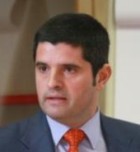
Dr. José Pons |
Dr. José Pons obtained his PhD in Physics, Universidad Complutense Madrid, in 1997. In 1998 he was appointed as Postdoctoral Fellow at the Institute for Industrial Automation of the Spanish Council for Scientific Research, CSIC. In 1999 he was awarded a position as Tenured Scientist, in 2007 a position as Research Scientist and eventually in 2008 a position as Full Professor, all at the same institution. Prof. Pons has been with CSIC since 1993 and is currently the Head of the Neural Rehabilitation Group. He has actively participated in a number of National, European and International RTD projects in the area of rehabilitation robotics, new actuators and control technologies. In particular, he was co-ordinator of EU GAIT, EU MANUS and EU ESBiRRo projects. In addition he is currently co-ordinating of several national scope and European projects, e.g. EU NeuroTREMOR, Biomot, H2R and HYPER. |
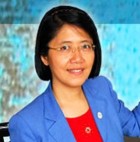
Dr. May D. Wang |
Dr. May D. Wang is a full professor, GCC distinguished cancer scholar and Director of Biocomputing and Bioinformatics Core in Emory-Georgia Tech Cancer Nanotechnology Center at the Wallace H. Coulter Department of Biomedical Engineering at Georgia Tech and Emory University. Dr. Wang's primary research interest is biomedical and health informatics in systems medicine and healthcare, with the goal to speed up the discovery, development, and translation in modern biology, medicine, and health. She has played an active role in several working groups within National Cancer Institute (NCI/NIH) cancer Biomedical Informatics Grid (caBIG), and FDA-led Microarray Quality Control Consortium (MAQC) on biomarker and nanomedicine for personalized medicine. As the corresponding or co-corresponding author, Dr. Wang has published in journals such as Annals of Biomedical Eng, BMC Bioinformatics, Trends in Biotechnology, Nature Protocols, Proceedings of National Academy of Sciences, Annual Review of Medicine, and the Pharmacogenomics Journal. Dr. Wang received Distinguished Cancer Scholar Award from Georgia Cancer Coalition in 2004, an Outstanding Undergraduate Research Faculty Mentor Award from Georgia Tech in 2005, and an Outstanding Service Award from IEEE BIBE in 2007. She is appointed as the Chair of Technical Committee on Information Technology for Health in IEEE Engineering in Medicine and Biology Society (EMBS) in 2011, and serves as associate editors for a couple of journals. Dr. Wang received Ph.D.EE, multidisciplinary MS degrees (EE, Applied Math, and CS) from Georgia Institute of Technology in USA, and BEng from Tsinghua University in China. In addition, Dr. Wang has several years of industrial R&D experience in the former AT&T Bell Labs, Intel Architecture Labs, Hughes Research Labs, Lucent Technologies Bell Labs, and Agere Systems. Dr. Wang was inducted to the College of Fellows of AIMBE. |
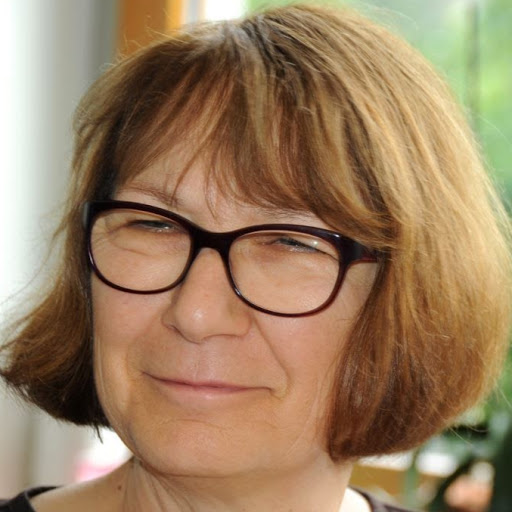
Dr. Gudrun Zahlmann |
Dr. Gudrun Zahlmann is currently the senior director imaging infrastructure at Hoffmann La Roche. She is a Biomedical Engineer and Biomedical computer scientist by training. She received her PhD from Technical University Ilmenau, Germany on in-vivo glucose sensor research. Gudrun has worked in different Universities and Research Institutes before she joined industry. Her research work started with in vivo sensors as input to artificial organs with feedback controlled actor systems. Then she contributed to decision making based on insecure and sparse information in different kinds of online systems including telemedicine solutions. This understanding of data information decision process and knowledge generation is now further developed for imaging data in a quantitative and qualitative manner. She is engaged in several international working groups dealing with quantitative imaging as biomarker. Gudrun is VO member and student activities of EMBS. |
Junior Faculty
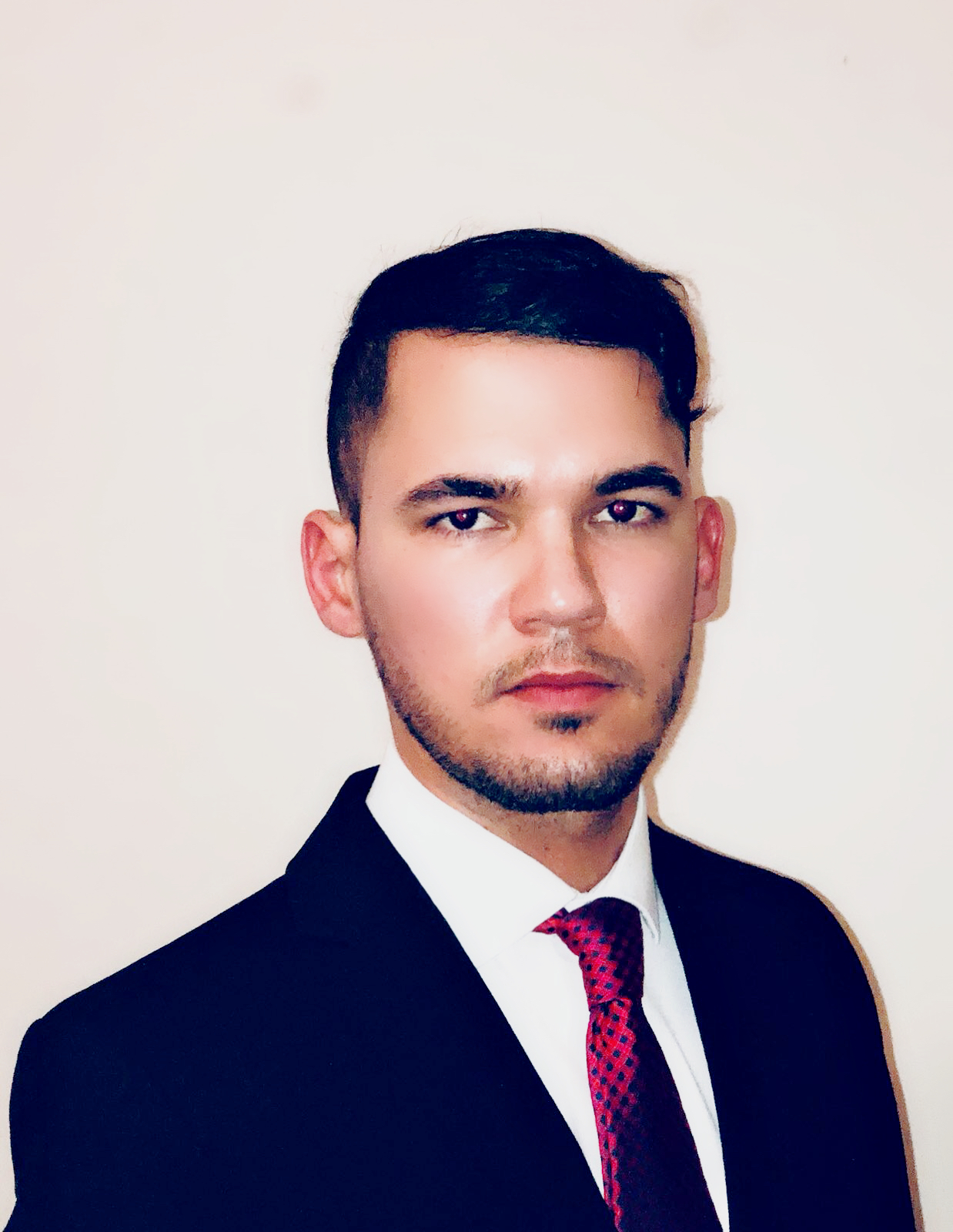
Dr. Jean C. Cruz Hernández |
Dr. Jean C. Cruz Hernández is a Postdoctoral fellow in The Wellman Center for Photomedicine at the Massachusett General Hospital at Harvard Medical School, supervised by Dr. Charles Lin. He received his PhD in Biomedical Engineering from Cornell University in 2017, under the supervision of Dr. Chris B. Schaffer. At Cornell he conducted research on: I) the development and optimization of non-linear optic system, awake imaging system and surgical preparations (craniotomies and laminectomies); and II) the characterization of cell-cell dynamics under normal and disease states. The results of his work were reported in multiple high tier journals (Nature Methods, Nature Neuroscience, Nature Communication, etc.). In addition his thesis project have been the basis of several short film, documentary and the first citizen science/crowdsourcing game "Stall Catchers" to speed up the research in Alzheimer's disease.
In Dr. Charles Lin's lab at MGH and HMS, Dr. Cruz is developing new imaging tool and strategies that allows 1) in vivo imaging of leukocyte-endothelial interactions in the mouse retina as a noninvasive method for assessing central nervous system inflammation; 2) in vivo imaging and characterization of multiple cell dynamics in the brain and spinal cord (simultaneously) under central nervous system inflammation and 3) in vivo imaging and characterization of the bone marrow microenvironment in order to improve bone marrow transplantation and treatment for leukemia and other hematologic malignancies. His area of interest is the development of advanced optical techniques that enable quantitative imaging and targeted manipulation of individual cells in the vascular system, immune system and in the central nervous system of rodents with the goal of constructing a microscopic-scale understanding of normal and disease-state physiological processes in the retina, brain, spinal cord and bone marrow. |
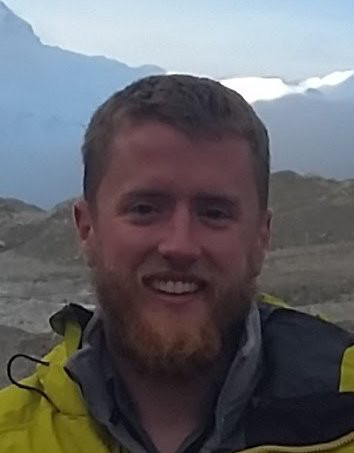
Dr. Jason Jones |
Dr. Jason Jones is finishing his PhD in Biomedical Engineering at Cornell University in the Schaffer-Nishimura lab. During his time in the lab he has developed an intravital imaging system which using higher order nonlinear excitation and fast scanning to facilitate functional imaging in the heart and spinal cord of rodents. His thesis work includes quantification of cardiomyocyte calcium signals in healthy and pathological conditions to better understand mechanisms underlying arrhythmogenic tissue following infarction. When Jason is not in the lab he also enjoys backpacking, restoring motorcycles, and teaching outdoor education courses at Cornell. |
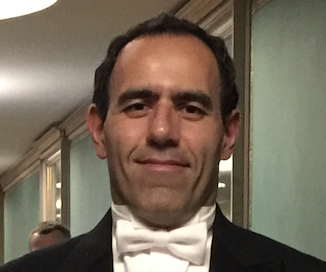
Dr. Altug R. Akay |
Dr. Altug R. Akay received his MS in Global Healthcare from Dartmouth College, where his research focused on using neural networks to ascertain anemia's prevalence in Southwest Turkey. He then worked at the Harvard-MIT Health Science and Technology program, where he worked on microfluidic technology and its practical applications in medicine and food safety. He recently received his PhD in Medical Engineering at the Royal Institute of Technology (KTH) in Stockholm, Sweden, in 2017, under the supervision of Björn-Erik Erlandsson. At KTH, he focused on the development of novel data mining techniques that ascertained consumer feedback of pharmaceutical drugs in social media platforms. He worked at Siemens Healthcare AG, Max-Planck Institute for Intelligent Systems, and Sony DADC, where he focused on Image and Knowledge Management, Nano-robotics, and Bio-nanoscience, respectively as a PhD intern. He is currently a postdoctoral fellow at the Hess Lab for Nanobiotechnology and Synthetic Biology at Columbia University, under the supervision of Prof. Henry Hess. He is currently developing a robust machine learning platform that can investigate, and predict, the dynamic, and swarm, behavior of microtubules. The ultimate goal is to develop a multi-scale platform that can be used to understand, predict, and mimic the behavior of various micro- and nano-systems. |
